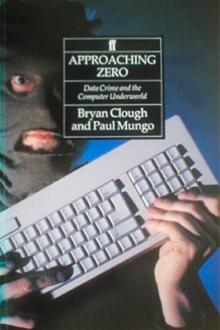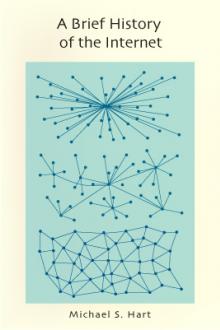Genre Computers. Page - 5
No registration or authorisation! And it is all for free!

ele-1983, but external conditions caused the temporary' freeze to become permanent.The AI Lab culture had been hit hard in the late 1970s by funding cuts and the resulting administrative decision to use vendor-supported hardware and software instead of homebrew whenever possible. At MIT, most AI work had turned to dedicated LISP Machines. At the same time, the commercialization of AI technology lured some of the AI Lab's best and brightest away to startups along the Route 128 strip in

neral commitment to a cathedral-building style of development. If the overriding objective was for users to see as few bugs as possible, why then you'd only release a version every six months (or less often), and work like a dog on debugging between releases. The Emacs C core was developed this way. The Lisp library, in effect, was not-because there were active Lisp archives outside the FSF's control, where you could go to find new and development code versions independently of Emacs's release

ng of the word "any."Dick Sunderland Chalk-complexioned MBA who believed that firm managerial bureaucracy was a worth goal, but as president of Sierra On-Line found that hackers didn't think that way. Gerry Sussman Young MIT hacker branded "loser" because he smoked a pipe and "munged" his programs; later became "winner" by algorithmic magic. Margot Tommervik With her husband Al, long-haired Margot parlayed her game show winnings into a magazine that

effectively stopped growing and changing. Originally, this was due to a desire to freeze the file temporarily to facilitate the production of Steele-1983, but external conditions caused the temporary' freeze to become permanent.The AI Lab culture had been hit hard in the late 1970s by funding cuts and the resulting administrative decision to use vendor-supported hardware and software instead of homebrew whenever possible. At MIT, most AI work had turned to dedicated LISP Machines. At the same

not these items, but rather the tools used create such items. After all, wire, metal tubes, planks, and bricks don't magically appear; rather they are created and formed as entities unto themselves. On a similar note, graphics don't magically appear on the screen -- typically they consist of lower-level graphics primatives (lines, rectangles, and individual pixels, for example).So the graphics library, then, can be thought of as the low-level graphics primatives used to build more complex

hatever. This is where screen capturing and logging come in.When you tell your communications software to capture a screen, it opens a file in your computer (usually in the same directory or folder used by the software) and "dumps" an image of whatever happens to be on your screen at the time. Logging works a bit differently. When you issue a logging command, you tell the software to open a file (again, usually in the same directory or folder as used by the software) and then give it

calls. The whole transaction had taken less than ten minutes.The next day, after his friend in Kentucky had picked up the $687, Fry Guy carried out a second successful transaction, this time worth $432. He would perform the trick again and again that summer, as often as he needed to buy more computer equipment and chemicals. He didn't steal huge amounts of money-- indeed, the sums he took were almost insignificant, just enough for his own needs. But Fry Guy is only one of many, just one of a

adand do that, I am giving you express permission right now. Enjoyyourself.You can put the book on disks and give the disks away, aslong as you don't take any money for it. But this book is not public domain. You can't copyrightit in your own name. I own the copyright. Attempts to piratethis book and make money from selling it may involve you in aserious litigative snarl. Believe me, for the pittance you mightwring out of such an action, it's really not worth it. This bookdon't

of this kind, of overtones and undertones that illuminate the hackish psyche.But there is more. Hackers, as a rule, love wordplay and are very conscious and inventive in their use of language. These traits seem to be common in young children, but the conformity-enforcing machine we are pleased to call an educational system bludgeons them out of most of us before adolescence. Thus, linguistic invention in most subcultures of the modern West is a halting and largely unconscious process. Hackers,

similar. I want yours. I want theone you have, even if I already have one or many.3. Lust: I have to have it. 4. Anger: I will hurt you to insure that I have it, andand to insure that you do not have one. 5. Envy: I hate that you have one. 6. Greed: There is no end to how much I want, or to howlittle I want you to have in comparison. 7. Sloth: I am opposed to you moving up the ladder: itmeans that I will have to move up the ladder, to keepmy position of lordship over you. If I have twice asmuch